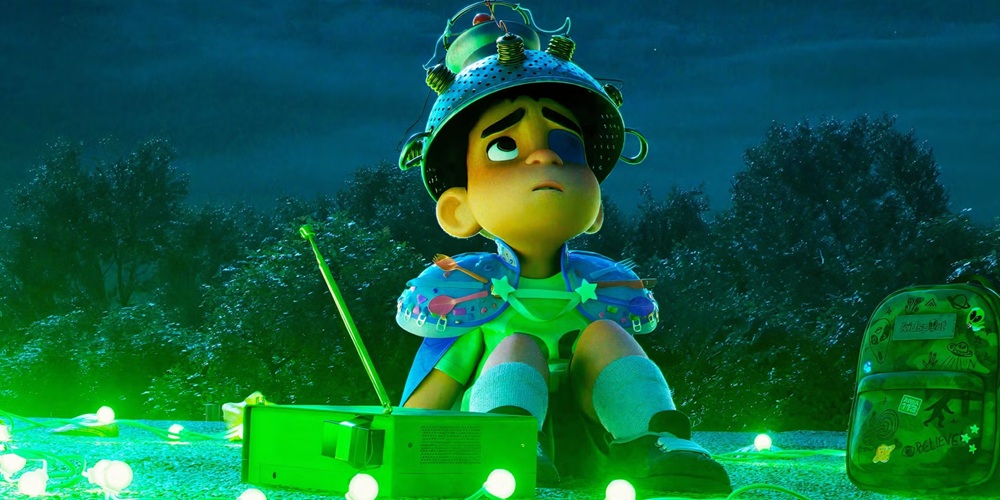Young outcast Elio is struggling to connect with his mom aunt, who herself is having a hard time dealing with his wild antics. Feeling unwanted, Elio accidentally makes contact with aliens from outer space is literally begging for aliens from outer space to take him. Mistaken as the leader of earth thanks to a miscommunication, Elio is terrified ecstatic when he is in fact abducted, only to find that his home planet is on trial he can stay with his newfound friends if he proves his worth to them. After befriending Ambassador Grigon crossing paths with Lord Grigon, Elio must play peacekeeper for the galaxy, all while forming a bond with the trigger-happy Grigon’s friendly son.
If you saw the first trailer for Elio–which is still online–before it premiered in front of Elemental in theaters two years ago, you might be wondering why none of its scenes are as they are in the finished film. As you’ve possibly heard, the movie had a quite rocky production history, but what makes Elio fascinating is it was apparently entering its final stages of production before Pixar ordered a complete overhaul, reportedly resulting in them essentially making the same movie twice. Gone was Elio’s mom. In was Elio’s aunt. Gone was Elio being abducted against his will. In was Elio becoming obsessed with it. On and on it goes. Even the aspect ratio changed! Hopefully one day we’ll truly learn more of what might’ve been, but in the meantime, we’ll just have to deal with the Elio we’ve got.
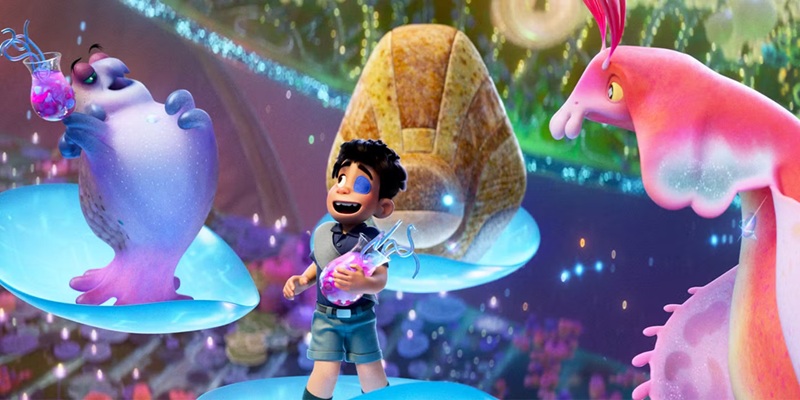
And let me clarify this: Elio is a good movie. It might even be a really good movie. But it is also, you could argue, a disappointing movie, and while that statement might sound contradictory for the sake of being so, something can leave you satisfied while still feeling like you wanted more. Elio is funny, engaging, and often very sweet, yet it’s strangely disjointed, like a broken vase someone tried to glue back together while missing some of the pieces that held it together in the first place. This was clearly a very personal project for original helmer Adrian Molina, and while new co-directors Madeline Sharafian and Domee Shi do the best they can, it ultimately feels like they’re finishing someone else’s diary entry.
Granted, this is far from the first time a directorial switch has happened at Pixar–look no further than Ratatouille or perhaps more infamously Brave–but what separates Elio from those is it doesn’t come across as organic in its own right. This is a movie about finding your place in the universe, so to speak, yet ironically it struggles to find its own identity.
But I feel like I’m being too negative. Again, Elio is solid entertainment, and certainly not without its ambitions. Beginning and ending with narration from Carl Sagan, this is a film that attempts to reach for the stars, and the first twenty minutes or so are especially strong. Elio, recently orphaned and now living with his aunt Olga, finds solace when he wanders into an observatory, laying on the floor, mouth agape with awe as he looks up towards the promise of connections he is currently unable to find on his “home planet.” It’s probably the first time since his personal tragedy he’s felt content, as his aunt is kept busy by her military career and unsure of how to become a proper guardian.
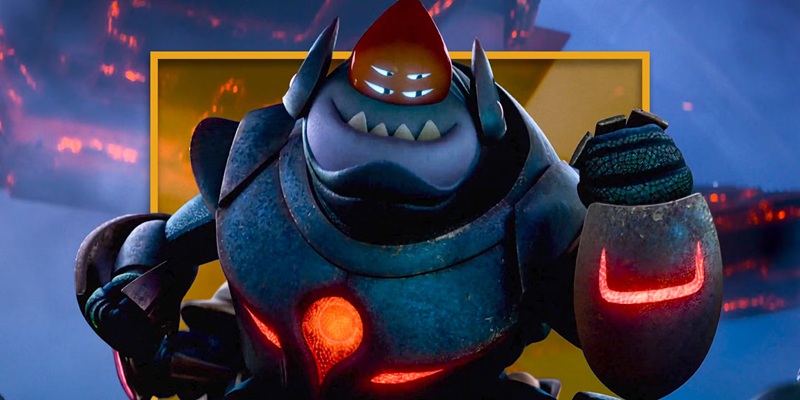
When Elio’s efforts to get “abducted” result in him getting a black eye after a conflict with some older kids, Olga gives up and has him sent to boot camp, which only further wounds their potential for healing and leaves the child even more isolated than before. These scenes do a great job of establishing a fractured relationship between youth and parental figure, and while I honestly think Disney’s Chicken Little remains one of the best examples of that in an animated film (come and get me, Animation Twitter!), Elio is nevertheless effective, and though it’s never overtly stated, the movie’s titular wannabe alien-abductee is clearly meant to be “on the spectrum.”
It’s once Elio actually goes into outer space when the movie stops feeling like Pixar’s answer to Amblin Entertainment and more like a perhaps too familiar outing for the studio, and if I had to guess, I’d say this where most of the more major storytelling changes happened. Instead of having to save the world, Elio is taken in by extraterrestrials who have recently discovered the satellite Voyager (yes, the same one from Star Trek: The Motion Picture) and want to find a new ambassador to join their special club. The warlord Grigon (hilariously voiced by Brad Garret, who is definitely a highlight here, and may as well be considered as essential to Pixar as John Ratzenberger at this point) wants to force his way into membership, but his violent nature is not in line with their values, and soon he’s threatening to wage war with them.
The “problem” with all of this–if we can call it that–is although it’s still very entertaining, Elio lacks the narrative drive to propel it forward like other offerings from The Lamp. His goal to become a member of the “Communiverse” is too vague to really be considered a stake, and Grigon is simply too funny to ever be an actual threat. Combine that with him being the daddy to Elio’s eventual buddy Glordon, and you can sense him inevitably becoming warm and fuzzy by the time the credits roll, though this does lead to the film’s biggest tearjerker moment which, ironically, doesn’t really involve its title character. Glordon’s species, it turns out, is extremely vulnerable when out of his element, so when he winds up on earth, the movie suddenly becomes E.T. as Elio(t) must race to save his best friend from dying.
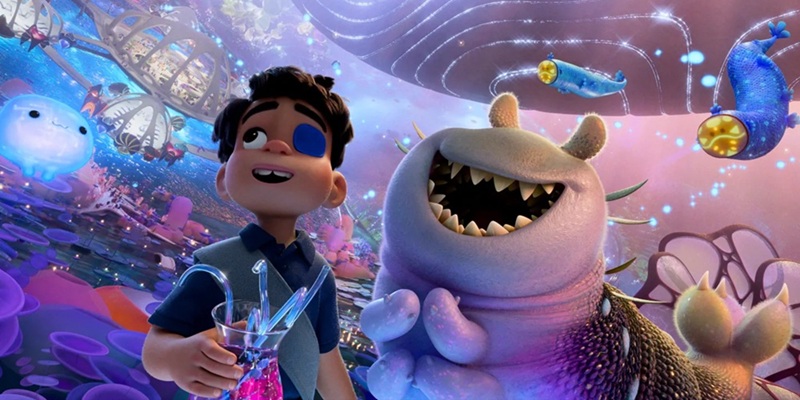
Which is to say Elio is still very emotionally involving, even as it feels somewhat patched together. How come none of the aliens suspect Elio of being a kid when he behaves exactly like Glordon does, meaning the concept of children is not foreign to them? How come they never try to learn more about Earth from him? How has Elio created a fully sophisticated alien language when he’s only 11? Why is the “nerdy computer guy” (who looks exactly as you’re currently imagining him, for better or worse) brushed aside as a lunatic when he provides very credible evidence that he’s made contact with another lifeform? Why do the end credits thank the US Military and United States Air Force when the movie portrays their security systems as weak enough for a preteen to hack?
Ultimately, none of this stuff really matters as far as Elio’s enjoyment factor goes, even if for me it wasn’t as fun or funny as this year’s other animated galactic adventure The Day the Earth Blew Up. Pixar’s track record remains strong as they have yet to make a “bad” film (and yes, I am including Cars 2 when I say that). But even though I really liked it, I do kind of wish Elio flew just a bit higher.
NOTE: Elio does feature a mid-credits stinger. However it does not include the “blooper reel” as you might have heard elsewhere. What it does have at the very end of the credits (as in after the final film logos) is an extremely brief teaser trailer for Pixar’s Hoppers.
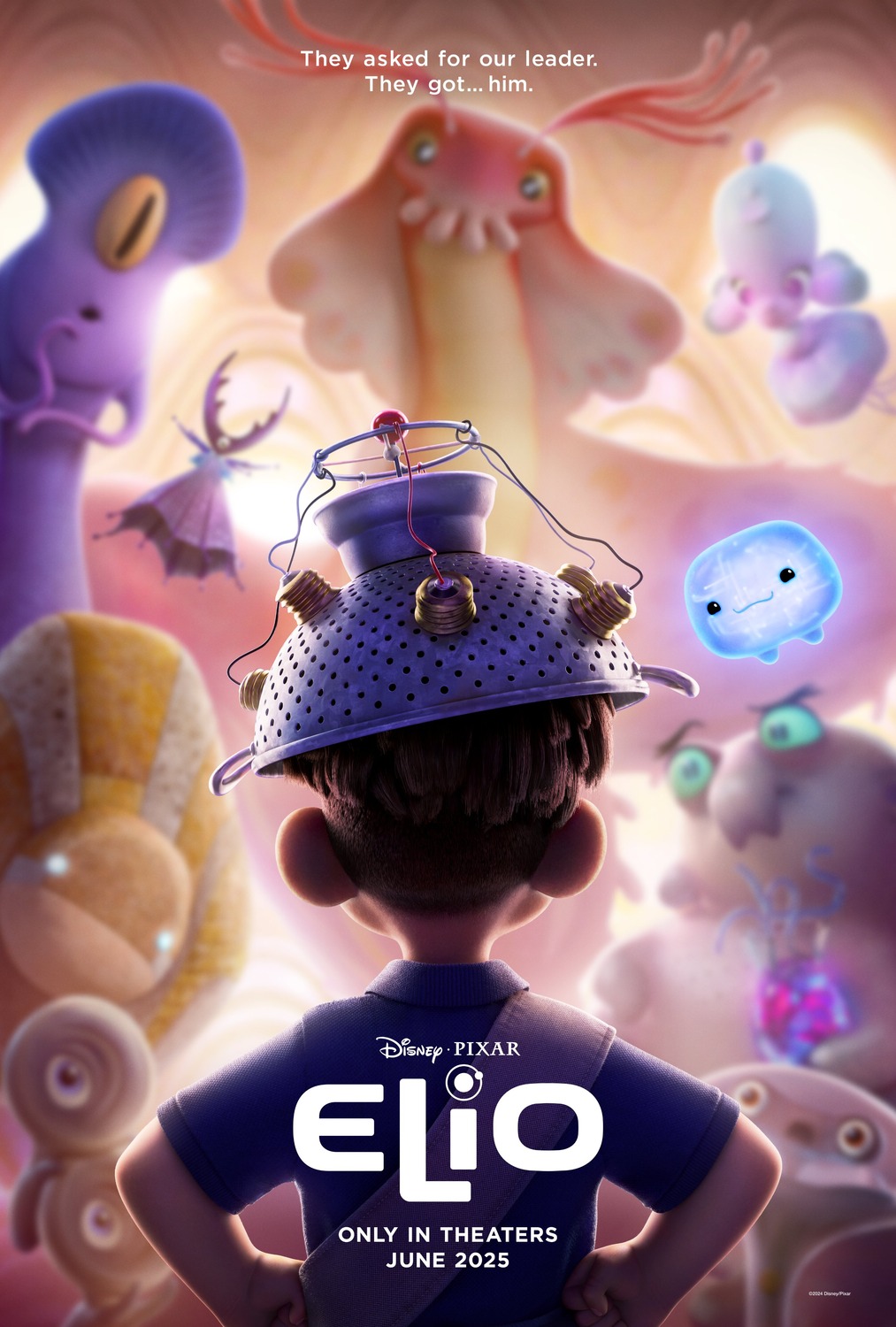 | Elio Disney, Pixar June 20, 2025 98 minutes Rated PG Directed by Madeline Sharafian and Domee Shi | |



